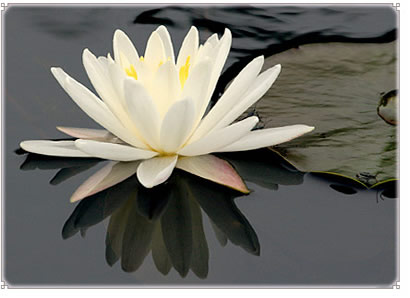
Last year I went to a yoga festival in California, and I spotted a young man with a T-shirt that had the following words printed on the front:
LIFE BEGINS AT THE END OF YOUR COMFORT ZONE
How true! When we are faced with discomfort, whether it be physical, emotional, or the myriad stresses and challenges that life brings, that’s where the growth happens. There’s a hidden gift in it, as we are shaken out of our habitual ways of thinking and acting, and we are called to stretch beyond what we thought was possible for ourselves.
I’m not speaking here of going WAY beyond the comfort zone, to the point where we are in excruciating pain, but rather to the place where we feel a little pull, a little heat, a little squirmy. It’s that place where we might want to run the other way, but if we stay right there, that’s where the jewel is shining. The end of the comfort zone is that place that calls us to pay attention, to wake up to what’s happening, and to respond with whatever is needed. And often what is needed is more presence, compassion, and perhaps some surrender, so that we move beyond the resistance or numbness to life.
In yoga, we have plenty of opportunities to practice this on the mat, as we explore the boundaries of our physical comfort zone. It’s what is referred to as finding our “edge”—the place in a posture or stretch where we meet the limit of our flexibility or strength. At the edge we feel increased sensation, more aliveness, more heat. It’s the place where we are called to show up with deeper, more mindful breaths. In this practice, we don’t push ourselves over the edge to the point of pain. If our shoulders tense up and we find ourselves grimacing, then we know we have gone too far (remember the yogic principle of ahimsa, or non-violence!)
It doesn’t matter how deeply we can go into a posture. If we are meeting our edge and breathing into it, allowing the body and mind to soften, then we are getting just as much benefit out of the posture as the person on the next mat who looks like they are posing for the cover of Yoga Journal. It’s an internal inquiry, rather than an external goal.
In Kripalu yoga there is a model of mindful practice known as BRFWA, which is an acronym for Breathe, Relax, Feel, Watch, Allow. Anytime we are deepening into a posture and find that we’ve met our edge, we can work with BRFWA:
BREATHE: Reconnect with the sensations in the body through attention to inhalation and exhalation. Engage deep 3-part yogic breaths, and if ujjayi (ocean breath) is part of your practice, engaging that pranayama helps encourage focus and presence.
RELAX: Soften muscles, reduce any effort around mental activity. Open to energy moving through resistance in the body/mind.
FEEL: focus awareness on the sensations, feelings, and thoughts flowing through the body/mind. Avoid engaging in the story of these thoughts and feelings—simply experience them as energy passing through.
WATCH: Cultivate “witness consciousness” by observing your experience with non-judgmental awareness and compassion.
ALLOW: Let your experience be just what it is, without any need to judge it, change it, or fix it. Energy integrates on its own.
The methodology of BRFWA allows us to sustain poses longer as we learn to ride the wave of sensation. You may also notice that your edge shifts as you hold the pose and stay present with what arises, and the edge will also change from practice session to practice session, over time. The good news is that we are ever changing organisms, and that when we pay exquisite attention, every moment is new.
Once we become experienced at using the BRFWA methodology on the mat, we can take it into our lives, where there are countless opportunities to practice—in relationships, work, health, and more. In this way, we can let life be our yoga, and when we come up against an edge, we can be grateful for this invitation to be fully alive.
take time to slow down
the pace of life. Watch the
rise and fall of moods, the
birth and death of dreams.
Feelings and sensations seem
so real, yet they shift like
changing clouds, and flow
with the high tide out to sea
again. Allow it all to be, no
need to grasp or push away.
Present with each moment,
the whole of you, body, mind
and soul, opens to receive.
~Danna Faulds, from Go In and In: Poems from the Heart of Yoga


No comments:
Post a Comment
Please let me know your thoughts!